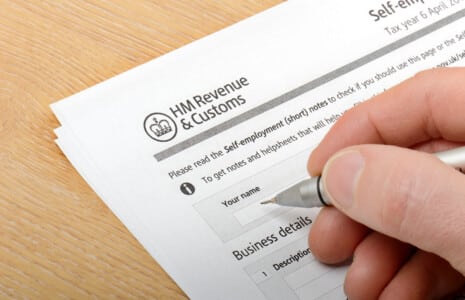What Are Customer Due Diligence (CDD) Checks in AML?
Customer Due Diligence (CDD) checks are a vital part of anti-money laundering compliance for all accountants and bookkeepers. Discover why they are so important, how to conduct them effectively, and where you can access support to maintain compliance.
What Is Customer Due Diligence (CDD)?
Customer Due Diligence (CDD) is the process of verifying a client’s identity and assessing their level of risk in accordance with anti-money laundering (AML) regulations. It involves collecting and verifying certain key information to ensure transactions are legitimate and free from financial crime.
Under UK AML laws, Customer Due Diligence (CDD) is a legal requirement for businesses, accountants and legal professionals. It helps prevent money laundering, fraud and other illegal financial activities by ensuring that businesses understand who they are dealing with. Failing to conduct adequate CDD checks can result in severe penalties, making them essential for risk management and compliance.
Why Are CDD Checks Important?
CDD is a crucial safeguard in the fight against money laundering, fraud and financial crime. By verifying a client’s identity and assessing their risk profile, businesses can detect suspicious activity and prevent illicit funds from entering the system. These checks help to ensure transparency and security, protecting both businesses and the wider economy from financial crime.
Under Anti-Money Laundering (AML) regulations, CDD checks are a legal requirement. Financial institutions, accountants and other businesses must comply by following four key steps – reinforcing their credibility, reducing financial risk, and ensuring that they operate ethically and securely.
What Are the Key Steps in CDD Checks?
There are four key steps that accountants, bookkeepers and other businesses should follow when conducting CDD checks:
Identifying the Customer
For individual clients, this step involves collecting basic personal or business details. These include their full name, date of birth and registered address.
For businesses, these checks require gathering company registration details, directors’ names and identifying beneficial owners.
Verifying the Customer’s Identity
Once the customer’s identity has been gathered, it must be verified. Acceptable forms of identification include government-issued documents, such as passports and driving licences, as well as proof of address, like utility bills or bank statements.
To improve accuracy and efficiency, many businesses use electronic verification and KYC (Know Your Customer) tools: digital solutions that cross-check client details against official databases. This reduces the risk of fraud, and speeds up the verification process.
Assessing the Risk Level
Businesses must determine whether a customer presents a low, medium or high risk for money laundering – and this is based on a number of factors. These include the customer’s background, the nature of their transactions and their geographic location.
Red flags that can indicate higher levels of risk include politically exposed persons (PEPs), businesses in high-risk sectors (like gambling or cryptocurrency), and businesses with unclear ownership structures.
Ongoing Monitoring of Transactions
Customer Due Diligence (CDD) doesn’t end after the initial verification. Continuous monitoring is required to detect suspicious activity and ensure continued anti-money laundering compliance.
Examples of suspicious activity that may require reporting include unusually large transactions, sudden changes in transaction patterns, transfers to high-risk geographies or attempts to mask the source of funds.
What Are the Different Types of CDD?
There are three main types of CDD checks that accountants and bookkeepers should be aware of:
Standard CDD
These checks are used for most low-risk customers, where basic identity verification is sufficient.
Enhanced Due Diligence (EDD)
EDD checks are required for high-risk customers, such as those from high-risk jurisdictions or politically exposed persons. They involve additional verification steps, including checking the source of funds.
Simplified Due Diligence (SDD)
These are used in low-risk cases, such as public sector organisations or regulated financial institutions. Because of the level of regulation in such clients and lower levels of risk as a result, there are fewer verification requirements.
What Are the Mandatory CDD Requirements in the UK?
In the UK, CDD checks are a legal requirement for accountants, financial institutions, legal firms, and other businesses regulated under the Anti-Money Laundering Regulations. UK AML laws mandate CDD checks for new clients, high-value transactions, and when there are suspicions of money laundering or other financial crime.
A failure to comply with these regulations can result in significant penalties, including potential fines, reputational damage and even legal action.
Best Practices for Implementing CDD in Your Business
To effectively implement CDD and stay compliant, businesses should adopt best practices that streamline the process and reduce risk. Using AML software and electronic verification tools can automate identity checks, making client onboarding quicker, easier and more reliable.
Keeping detailed records of CDD checks is essential for regulatory compliance and audit readiness. Additionally, regular staff training on AML regulations and CDD responsibilities helps your whole team to identify risks, report suspicious activity and maintain compliance.
Stay Compliant with ICPA’s AML Tools and Support
ICPA members benefit from a range of accounting compliance tools to assist with AML compliance checks, including our ICPA Esssential Documentation Toolkit, our AML Procedures Pack, advice lines, on-demand training and more. Ensure you remain AML-compliant by taking advantage of our tools and resources – as well as enjoying our other ICPA membership benefits. Contact us today to find out exactly how we can help.
Get the latest news direct to your inbox
Sign up to our mailing list to receive weekly bulletins on all of the latest accounting news.
"*" indicates required fields



